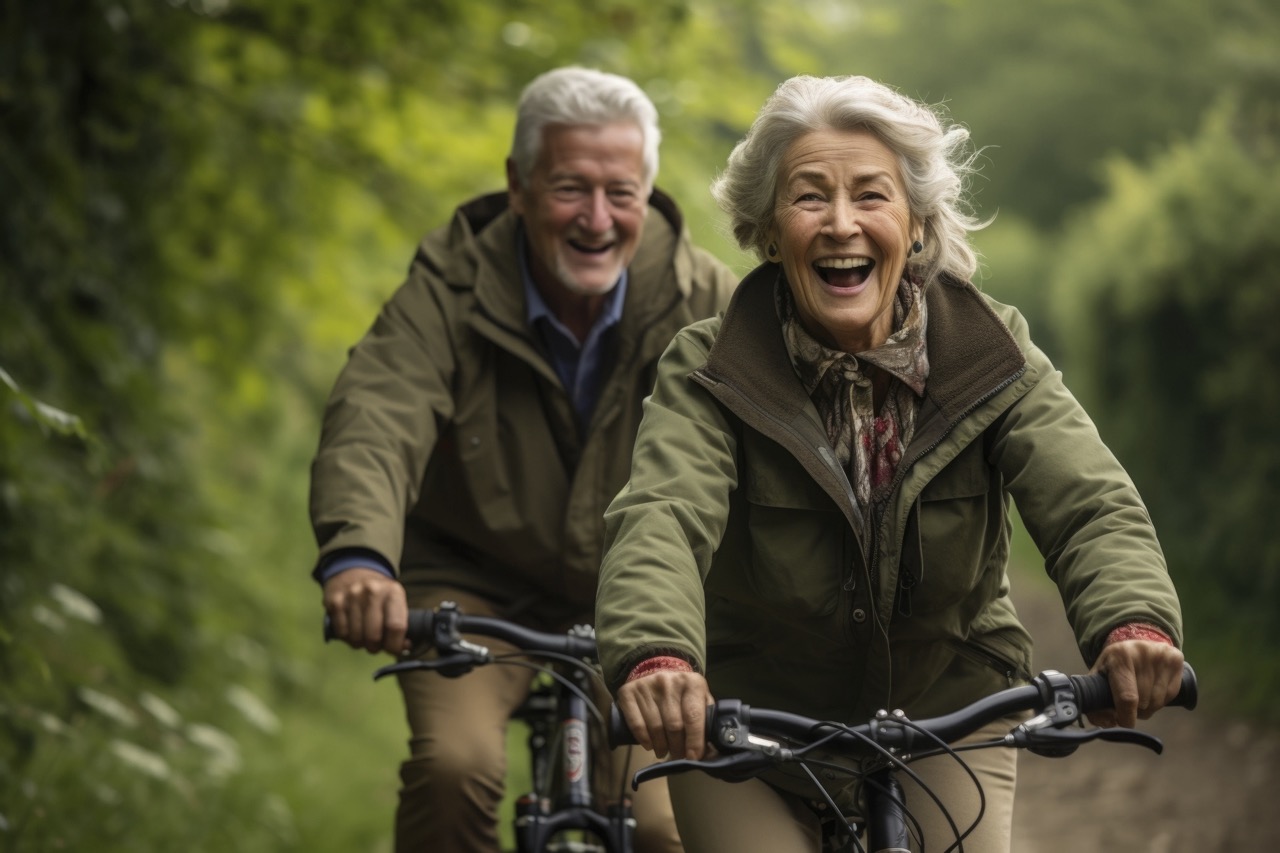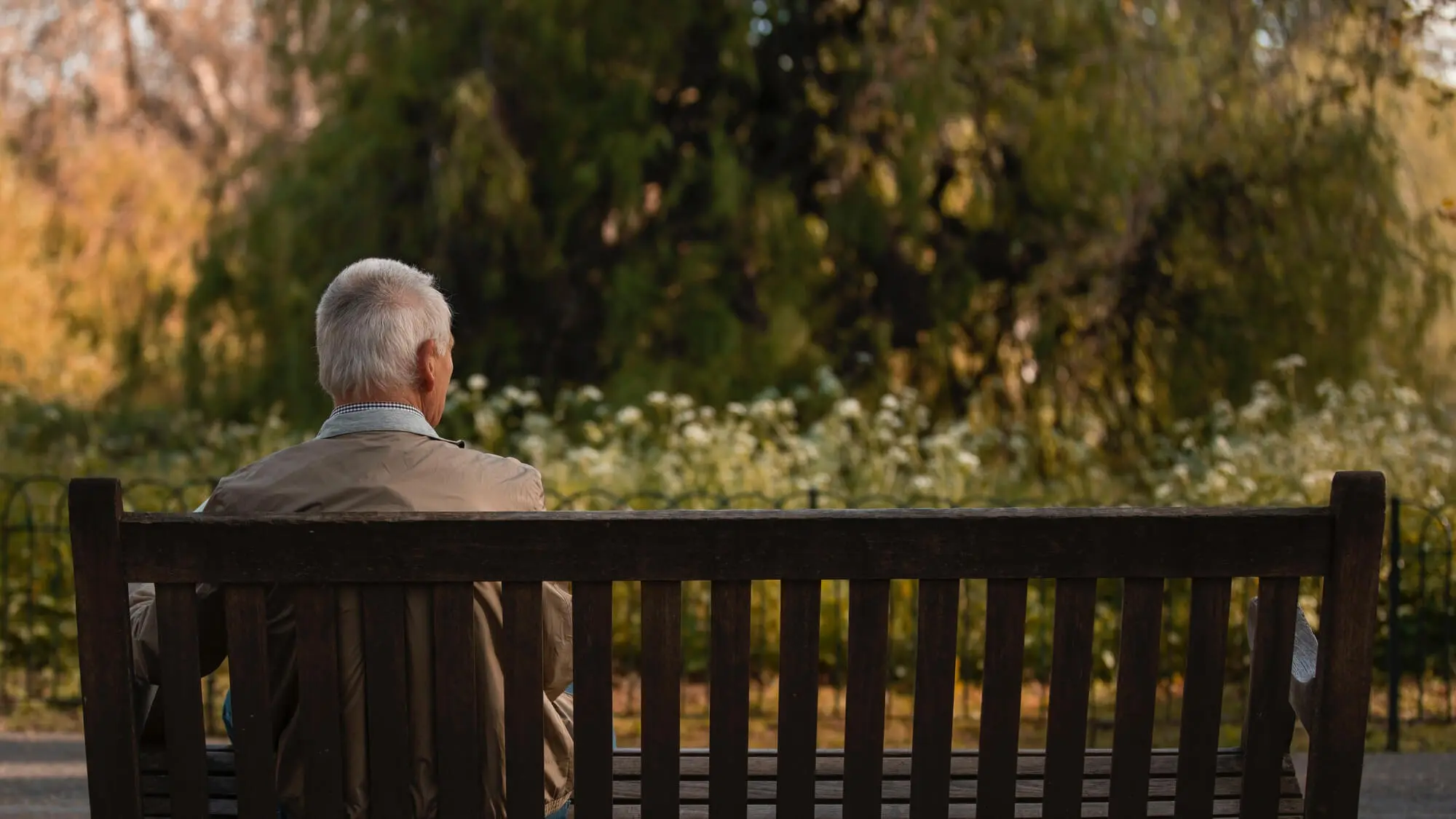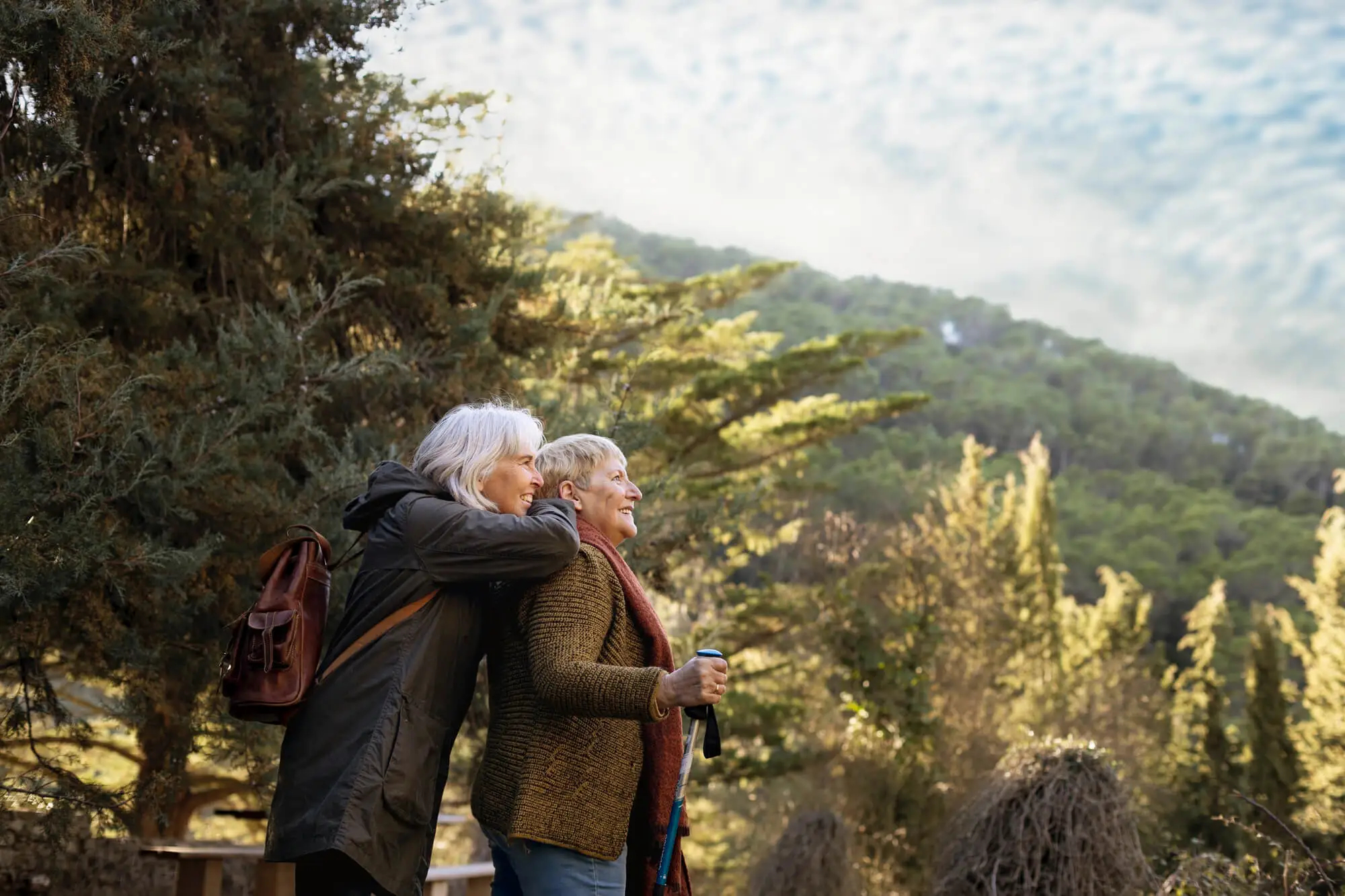These 9 Characteristics Show that Aging Is Malleable
What is shared by people over 60, who often look 20 years younger biologically — and what can be learned from this.

There are people who at 70 radiate more zest for life and mobility than others at 50. They appear mentally alert, physically agile and emotionally stable. What is the reason for that?
Genetics play a role, of course, but only one of many. More and more studies show that mindset, social integration and lifestyle also significantly influence how old we are biologically are. The biological age often differs significantly from the calendar and can be influenced in many cases.
This article is about nine qualities that stand out again and again in people who remain vital, open and resilient at an older age. Many of these features can be trained — regardless of the starting point.
The 9 features at a glance
1. Stay curious — for a lifetime
Learn new things, think, try out new things. Not because you have to — but because it's fun.
Studies show that regular learning (such as a musical instrument, a language, or a creative hobby) increases neural activity and builds up cognitive reserves. The well-known “synapse through curiosity” thesis certainly has biological substance: New impulses keep nerve connections active and delay cognitive decline.
Tip: Microlearning via app, creative courses, museum visits, new everyday routines, cooking recipes from other cultures, trying out an instrument, listening to a podcast that you don't understand — and still stick with it.
2. Movement that brings joy
It is not intensity that counts, but regularity and emotional connection. Anyone who likes to move — while dancing, hiking or gardening — activates protective mechanisms in the body: including less inflammation, better mitochondrial function, more stable blood pressure.
Movement acts as a gentle rejuvenating impulse at the cell level — especially when it is not carried out by force.
Impulse: Anchor movement as a ritual — not as a to-do list.
3. Look forward instead of back
Future-oriented people — regardless of age — show higher life satisfaction and lower rates of depression. According to studies, the “purpose” effect (experience meaning) is associated with a lower risk of death and better cellular regeneration.
This effect can be measured biologically through reduced inflammatory markers and longer telomeres, among other things.
Reflection: Which projects make you curious about tomorrow?
4. Maintain connections — across generations
Anyone who is in regular contact with younger (and older) people broadens perspectives — and protects themselves from social isolation, one of the strongest risk factors for early aging.
Social integration strengthens cognitive performance, emotional resilience, and even the immune system.
idea: Cross-age projects, sponsorship models, consciously cultivate mixed-age contacts.
5. Say “yes” — even if it's unusual
Openness to new things is a strong predictor of healthy aging — both psychologically and biologically. Those who approach life with flexibility show lower stress levels and better stress processing.
This “approach” mentality correlates with higher life satisfaction and lower chronic cortisol levels.
Suggestion: Consciously allow one new experience per week — no matter how small.
6. Humor makes things easier
Laughing is more than a social gesture: it regulates the autonomic nervous system, reduces inflammation levels and strengthens the immune system. If you don't take yourself too seriously, you can deal better with uncertainty, age and change.
Impulse: Collect sources of humor — from comedians to friends to your own quirkiness.
7. Find routines that stabilize
Many healthy older people have simple but stable routines. Sleeping times, eating windows, daily exercise — without compulsion, but with consistency. This creates rhythm, relieves decisions and stabilizes biological rhythms (e.g. cortisol curve, melatonin, blood sugar regulation).
idea: Strengthen a small habit every day — e.g. sleep routine, eating rhythm, cellphone-free hour.
8. Allow mistakes — and grow from them
Don't have to be perfect, but remain human. Older people who remain vital do not experience mistakes as a flaw, but as part of life. This reduces internal tension — and has a long-term health-promoting effect.
Self-compassion instead of self-optimization leads to a more resilient attitude towards aging processes.
Exercise: Don't evaluate a mistake, but ask: “What was human about it? ”
9. Cultivate lightness — instead of life balance
Self-irony, curiosity and courage make the difference. Not taking yourself too seriously — especially in old age — is an underrated protective factor. Anyone who can laugh at their clothing style, new decisions or their own quirkiness creates space for liveliness.
Impulse: Make a decision this week with ease — not out of reason, but out of joy.
What is biological age — and why can it be influenced?
Biological age describes the state of cells, organs and systems — regardless of the year of birth. It is based on epigenetic markers, telomere length, inflammation levels and metabolic function, among other things. Studies show that if you sleep well, exercise, are socially involved and reduce stress, you can “turn back” your biological age by years.
So far, this has only been measurable with restrictions — but the trend is clear: lifestyle counts.
Conclusion
Ageing is not just a calendar process. What we think, feel and do — every day — shapes our biological state. The nine characteristics shown here are not tricks, but lifestyles that promote vitality.
It is not about delusions of youth. It is more about redesigning old age: consciously, flexibly, humanely.
References
Publiziert
10.11.2025
Kategorie
Lifestyle

Experte
There are people who at 70 radiate more zest for life and mobility than others at 50. They appear mentally alert, physically agile and emotionally stable. What is the reason for that?
Genetics play a role, of course, but only one of many. More and more studies show that mindset, social integration and lifestyle also significantly influence how old we are biologically are. The biological age often differs significantly from the calendar and can be influenced in many cases.
This article is about nine qualities that stand out again and again in people who remain vital, open and resilient at an older age. Many of these features can be trained — regardless of the starting point.
The 9 features at a glance
1. Stay curious — for a lifetime
Learn new things, think, try out new things. Not because you have to — but because it's fun.
Studies show that regular learning (such as a musical instrument, a language, or a creative hobby) increases neural activity and builds up cognitive reserves. The well-known “synapse through curiosity” thesis certainly has biological substance: New impulses keep nerve connections active and delay cognitive decline.
Tip: Microlearning via app, creative courses, museum visits, new everyday routines, cooking recipes from other cultures, trying out an instrument, listening to a podcast that you don't understand — and still stick with it.
2. Movement that brings joy
It is not intensity that counts, but regularity and emotional connection. Anyone who likes to move — while dancing, hiking or gardening — activates protective mechanisms in the body: including less inflammation, better mitochondrial function, more stable blood pressure.
Movement acts as a gentle rejuvenating impulse at the cell level — especially when it is not carried out by force.
Impulse: Anchor movement as a ritual — not as a to-do list.
3. Look forward instead of back
Future-oriented people — regardless of age — show higher life satisfaction and lower rates of depression. According to studies, the “purpose” effect (experience meaning) is associated with a lower risk of death and better cellular regeneration.
This effect can be measured biologically through reduced inflammatory markers and longer telomeres, among other things.
Reflection: Which projects make you curious about tomorrow?
4. Maintain connections — across generations
Anyone who is in regular contact with younger (and older) people broadens perspectives — and protects themselves from social isolation, one of the strongest risk factors for early aging.
Social integration strengthens cognitive performance, emotional resilience, and even the immune system.
idea: Cross-age projects, sponsorship models, consciously cultivate mixed-age contacts.
5. Say “yes” — even if it's unusual
Openness to new things is a strong predictor of healthy aging — both psychologically and biologically. Those who approach life with flexibility show lower stress levels and better stress processing.
This “approach” mentality correlates with higher life satisfaction and lower chronic cortisol levels.
Suggestion: Consciously allow one new experience per week — no matter how small.
6. Humor makes things easier
Laughing is more than a social gesture: it regulates the autonomic nervous system, reduces inflammation levels and strengthens the immune system. If you don't take yourself too seriously, you can deal better with uncertainty, age and change.
Impulse: Collect sources of humor — from comedians to friends to your own quirkiness.
7. Find routines that stabilize
Many healthy older people have simple but stable routines. Sleeping times, eating windows, daily exercise — without compulsion, but with consistency. This creates rhythm, relieves decisions and stabilizes biological rhythms (e.g. cortisol curve, melatonin, blood sugar regulation).
idea: Strengthen a small habit every day — e.g. sleep routine, eating rhythm, cellphone-free hour.
8. Allow mistakes — and grow from them
Don't have to be perfect, but remain human. Older people who remain vital do not experience mistakes as a flaw, but as part of life. This reduces internal tension — and has a long-term health-promoting effect.
Self-compassion instead of self-optimization leads to a more resilient attitude towards aging processes.
Exercise: Don't evaluate a mistake, but ask: “What was human about it? ”
9. Cultivate lightness — instead of life balance
Self-irony, curiosity and courage make the difference. Not taking yourself too seriously — especially in old age — is an underrated protective factor. Anyone who can laugh at their clothing style, new decisions or their own quirkiness creates space for liveliness.
Impulse: Make a decision this week with ease — not out of reason, but out of joy.
What is biological age — and why can it be influenced?
Biological age describes the state of cells, organs and systems — regardless of the year of birth. It is based on epigenetic markers, telomere length, inflammation levels and metabolic function, among other things. Studies show that if you sleep well, exercise, are socially involved and reduce stress, you can “turn back” your biological age by years.
So far, this has only been measurable with restrictions — but the trend is clear: lifestyle counts.
Conclusion
Ageing is not just a calendar process. What we think, feel and do — every day — shapes our biological state. The nine characteristics shown here are not tricks, but lifestyles that promote vitality.
It is not about delusions of youth. It is more about redesigning old age: consciously, flexibly, humanely.
Referenzen
Publiziert
10.11.2025
Kategorie
Lifestyle

.svg)














